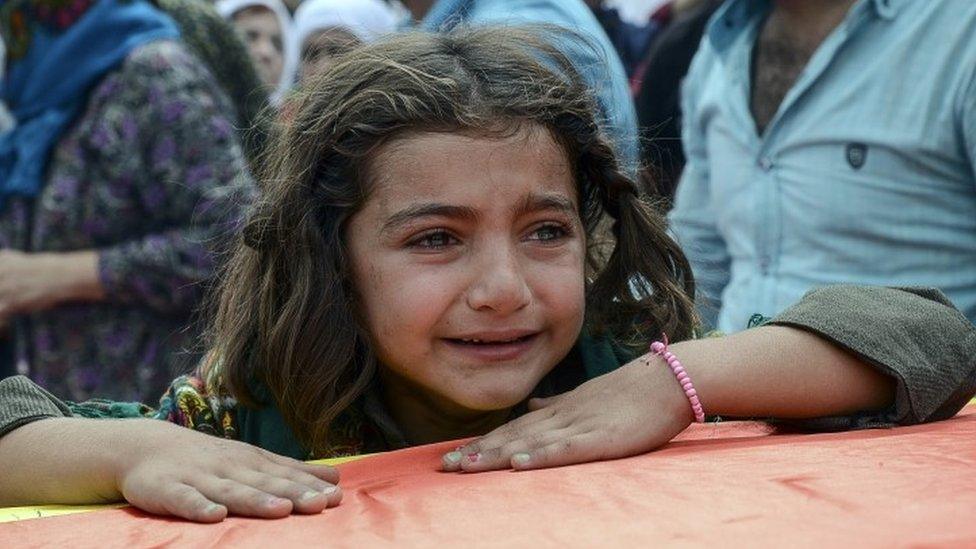Ankara bombing: Deep shock and anger in Turkey
- Published
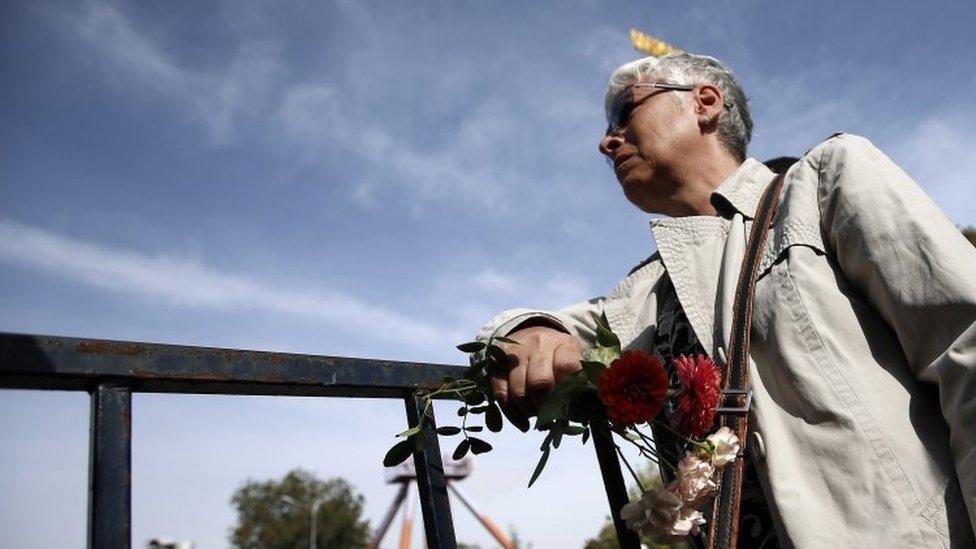
Many Turks will not forget the trauma created by Saturday's attacks
"The first explosion came. Within seconds, the other one… I realised there were body parts lying in front of us. Our friends were there at the spot. We were in shock. This was the worst scene I've ever seen."
Serdar Cil, a 23-year-old man, is clearly shaken. His eyes look tired and red and his legs keep shaking and his voice cracks as he speaks.
I meet him at the site of Saturday's twin bomb attacks on Ankara, as the nation mourns its dozens of dead and treats the hundreds of wounded.
He says he felt obliged to return. "I came back, because I don't want to forget what has happened here for the rest of my life," he says.
On Sunday, thousands of people had gathered at the square in central Ankara where a peace rally had been due to take place before it was interrupted by violence.
Initially the crowds wanted to lay carnations at the scene of the attacks. But police did not allow them in, citing security concerns.
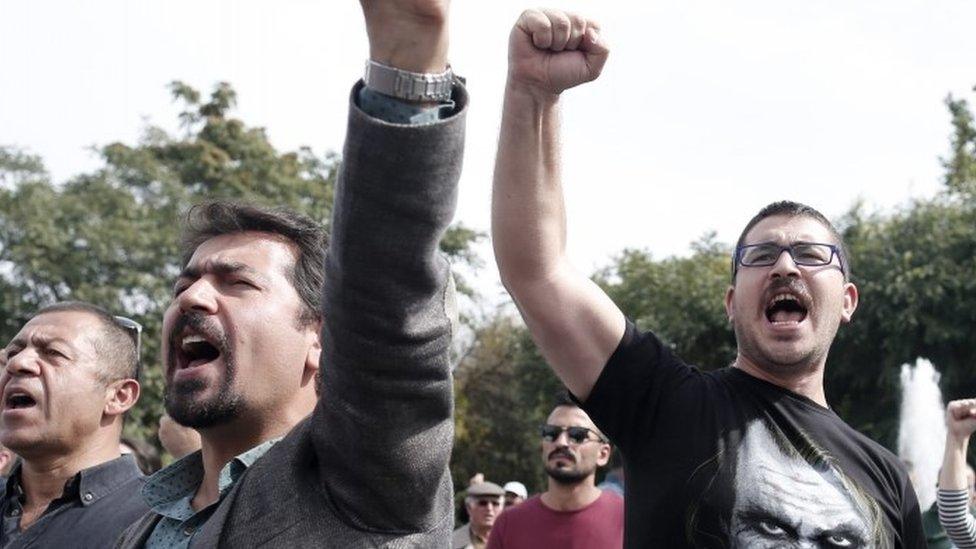
Many in Ankara felt a mixture of grief, anger and shock in the aftermath of Saturday's bombings
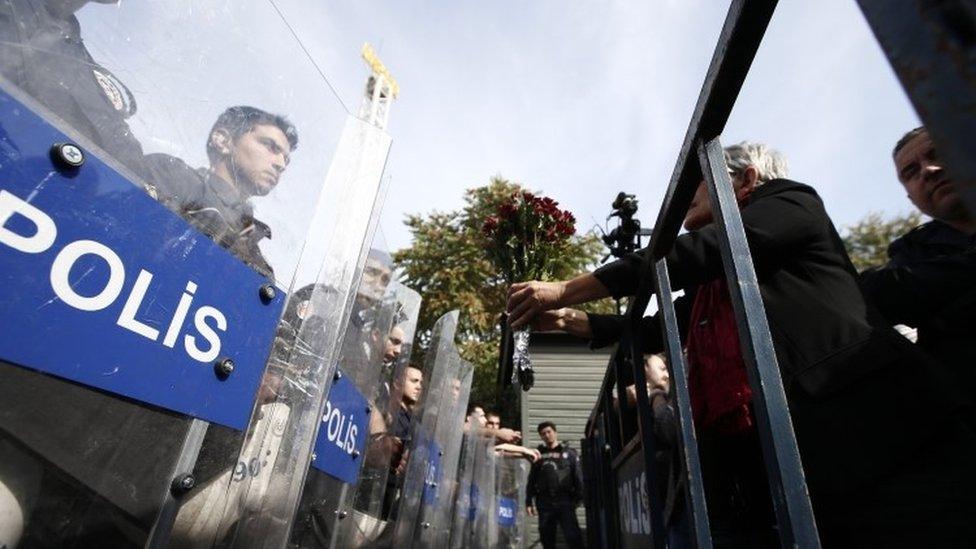
Police did not let protesters get too close to the scene of the attack
There was a clear sense of anger towards the government, with people blaming it for security failures.
The government has denied such allegations. Prime Minister Ahmet Davutoglu said it had intelligence of possible suicide attacks earlier in the week and had detained several suspects.
'Climate of oppression'
There has been no lack of condemnation of the attack.
Leftist opposition politician Alper Tas told me that those responsible for the bombing "wanted to give out a message of war, not peace" and to create a "climate of oppression".
"If the government says they are not to blame, they should bring the forces behind this massacre to account immediately," he said.
Footage showed the moment one of the blasts occurred
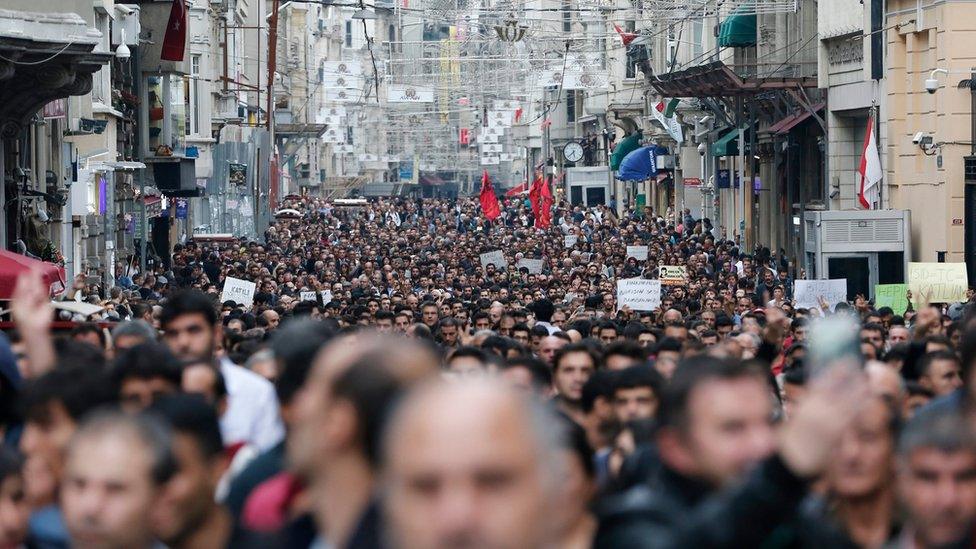
Protesters also gathered in Turkey's largest city, Istanbul, to condemn the attacks
No group has yet said it carried out the deadliest ever attack in Turkey.
The government believes it could be the Kurdish militant group PKK, the Islamic State (IS) or a radical leftist organisation.
What is clear is that the latest violence comes at a very significant and tense time.
Funerals have become a routine event and even before the bombing, emotions were running high across the country.
Since July, there have been increasing clashes between the security forces and PKK militants, claiming more than 150 lives - many of whom are soldiers or policemen.
The Turkish government has allowed its bases to be used for strikes against IS, leading many to fear reprisal attacks.
There will be a re-run of parliamentary elections on 1 November, after the pro-Kurdish party HDP's entrance into the parliament deprived the governing AKP of an absolute majority.
Now people are concerned about a further escalation in violence and maintaining security in the upcoming vote in three weeks' time.
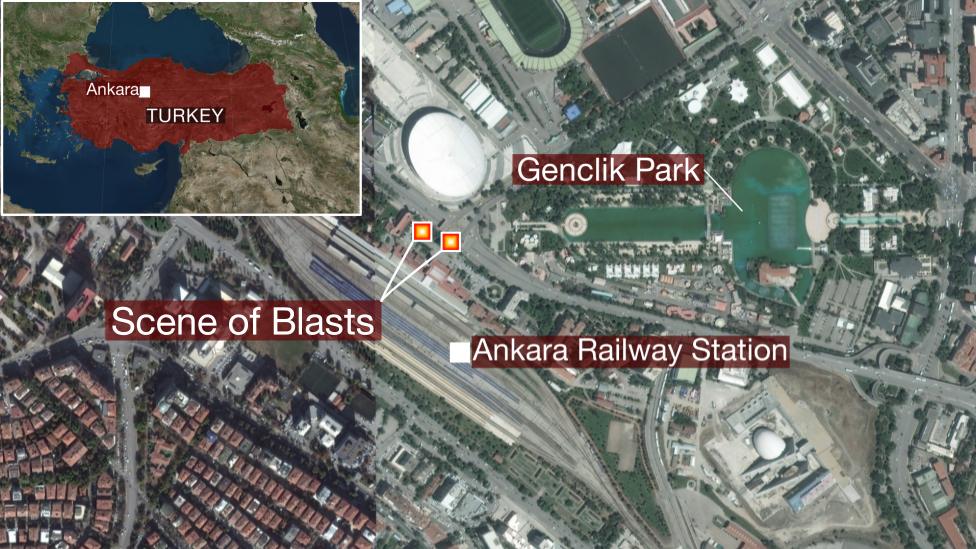
- Published10 October 2015
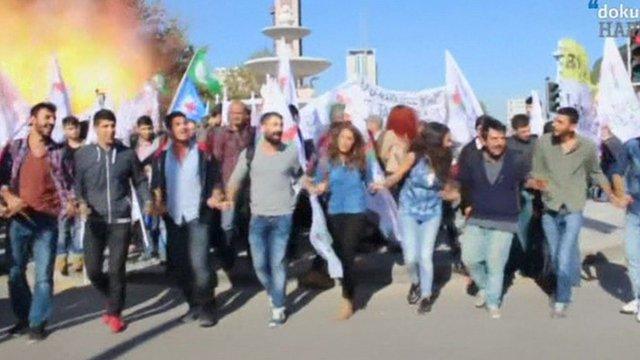
- Published10 October 2015
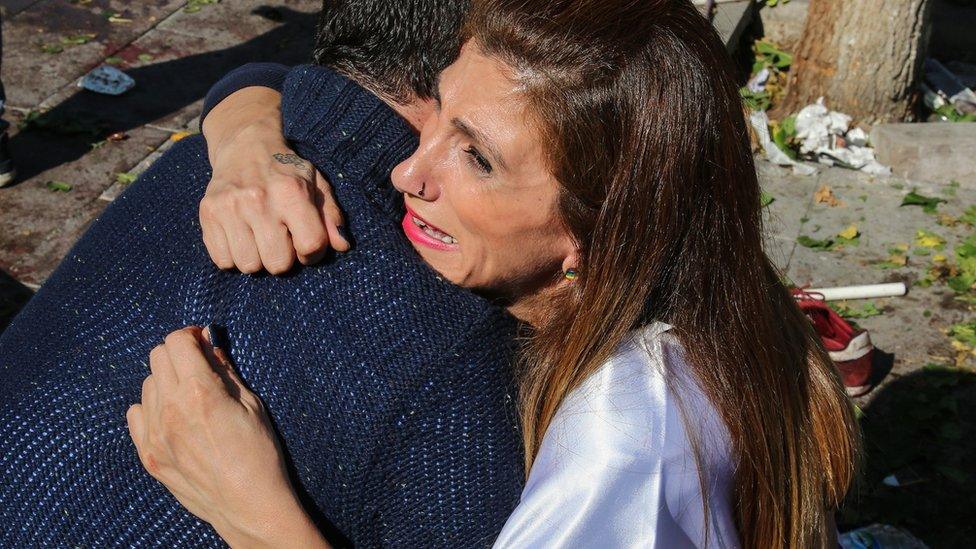
- Published23 August 2016
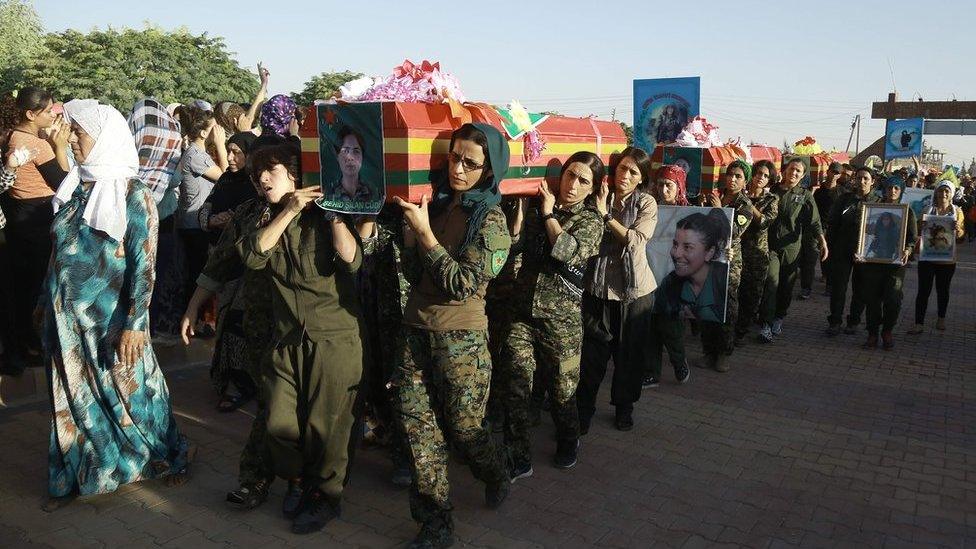
- Published9 September 2015
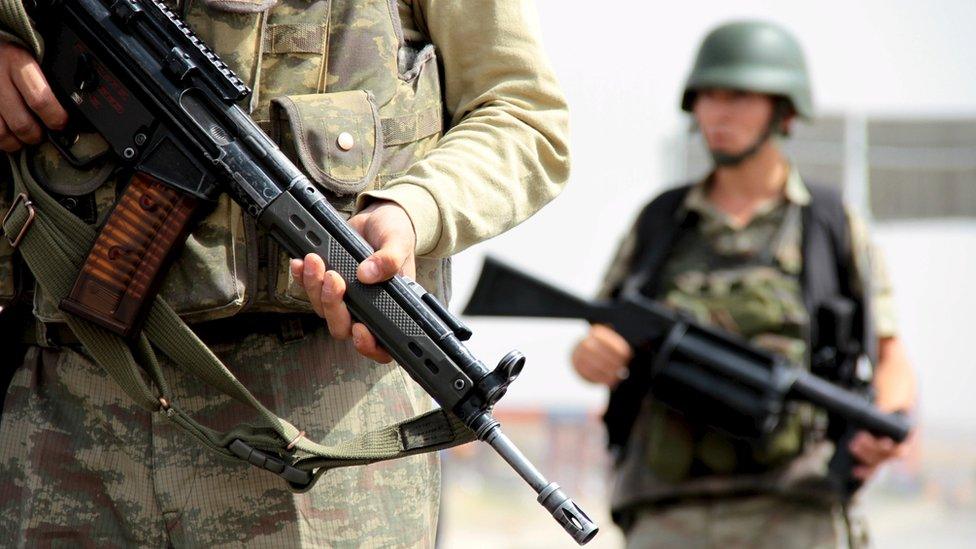
- Published8 June 2015
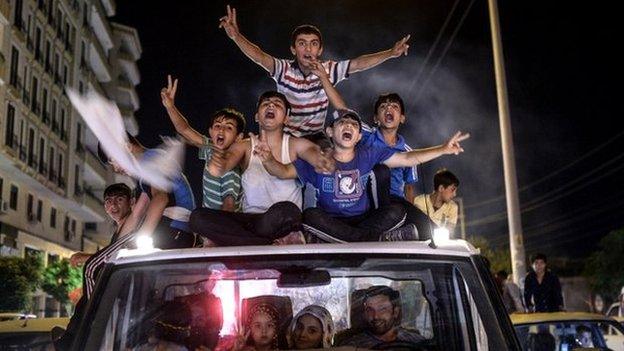
- Published18 September 2015
